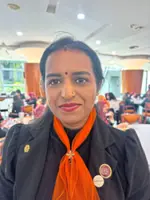It has been about 10 years in the making, but the all-women team behind Universiti Malaya’s Master of Gender Studies (by Coursework) postgraduate course couldn’t be more pleased that the programme has taken off – a sign that the university is headed in the right direction”
"The opportunity to, finally, offer such a Master’s programme is a sign that the university and the country are headed in the right direction. For the Gender Studies Programme (GSP) specifically, it means producing graduates who will spearhead change in their respective communities and countries
"Although you don’t need a Master’s degree to understand that inequality exists between the sexes, the Master’s programme allows students to delve deeper into gender-related issues and use a gender lens (see how men and women are differently impacted) when looking at social, economic, and political life. Dr Vilashini is a senior lecturer of the course along with her peers Dr Lai Suat Yan (Master’s programme coordinator), Prof Dr Shanthi Thambiah, Dr Ruhana Padzil, Dr Rusaslina Idrus and Noor Aini Dochik, administrator for the GSP.





